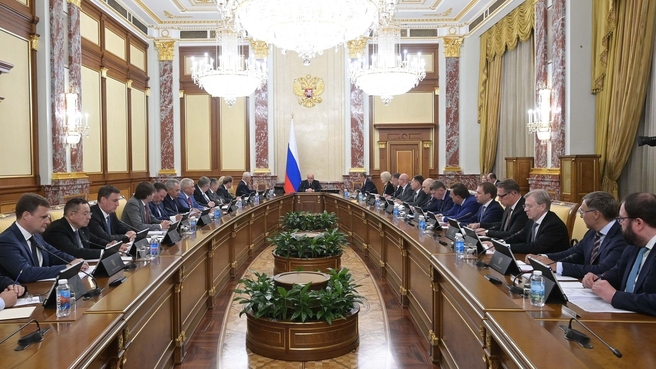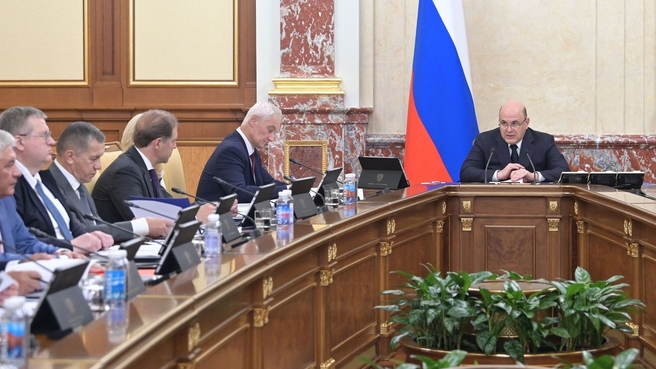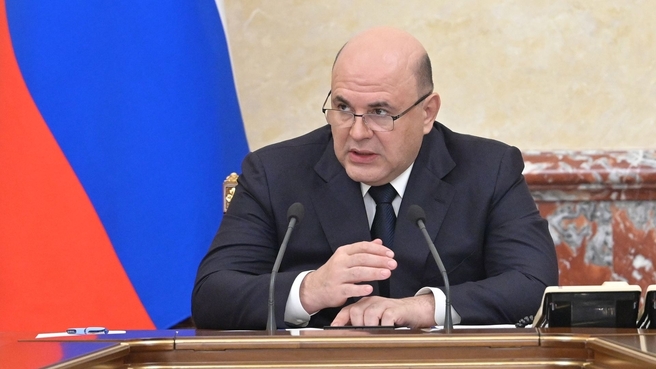Agenda: Supporting Russian aircraft building, additional funding to pay salaries for public sector workers, development of port capacities to store and transship mineral fertilisers.
Mikhail Mishustin’s opening remarks:
Good afternoon, colleagues.
The Government continues to make decisions to support Russian aircraft manufacturing. This sector is crucially important for reaching technological sovereignty and economic growth in the entire country and fulfilling the goals set by the President.
An important event happened recently: the first flight of a Sukhoi Superjet fitted with Russian-made systems and components. All of its units and components were made in Russia so they do not depend on foreign supplies in terms of use and maintenance. This is a result of the coordinated work of designers and engineers, workers and test pilots, who put these advanced ideas and developments into practice.
Today, we will discuss a package of measures to support this sector. In order to expand the production of the promising midrange airliner, the MS-21, we will change the rules for providing subsidies from the federal budget. This resolution will provide an entire range of aircraft manufacturing companies the opportunity to use some 20 billion roubles for technical re-equipping.
We will also extend the programme to subsidise loan interest rates that companies use to purchase Russian-made aircraft through this year. This will ensure the financing or leasing of over two dozen aircraft, including the Sukhoi Superjet and medical helicopters, the Mi-8 and Ansat, and most importantly, it will decrease their ultimate price.
We will simplify the procedure of creating an inventory of parts and equipment. The volume of inventoried parts will be determined in accordance with the total cost of the technical equipment necessary to maintain flight worthiness.
It will be easier for airlines to apply for compensation for part of the expenses of maintaining their fleet. The selection of applicants for such subsidies will take place through the State Industrial Information System. Many procedures will be automated. Applicants will no longer need to supply hard copies of documents.
At the same time, support will only be provided to those manufacturers with no more than 25 percent foreign components or systems.
We hope that these measures will expedite the modernisation of the Russian aircraft sector and help develop related industries.
Now to the agenda. On the President’s instructions, the Government continues to work on increasing household incomes for public sector employees, taking into account the May executive orders.
During last week’s meeting of the Council for Strategic Development and National Projects, the President emphasised that attention to increasing the salaries of such specialists should not be relaxed.
Since the beginning of the year, the wage pool for public sector employees who fall under the May executive orders has already been increased.
And today we will consider a package dealing with the additional allocation of over 30 billion roubles for specific social categories. These include teachers, doctors, and those involved in research and culture. All of them are employees of federal state institutions. These decisions are another step towards offering our citizens systemic support.
The next item is the development of port facilities for the storage and transshipment of certain types of mineral fertilisers.
With the imposition of the sanctions, Russian producers have been denied access to such infrastructure abroad, which makes transport logistics extremely difficult. Meanwhile, about 6 million tonnes of this commodity needs to be transported by sea every year.
For this purpose, we need to create our own facilities. The Government has drafted amendments to the Water Code that remove restrictions on the construction of specialised terminals in close proximity to the coastline.
This approach is fully in line with global practice. But it is important that the design documentation for new storage facilities undergoes mandatory state environmental evaluation. We have agreed on this.
This legislative initiative will help strengthen Russia’s sovereignty, as well as food security around the world.














